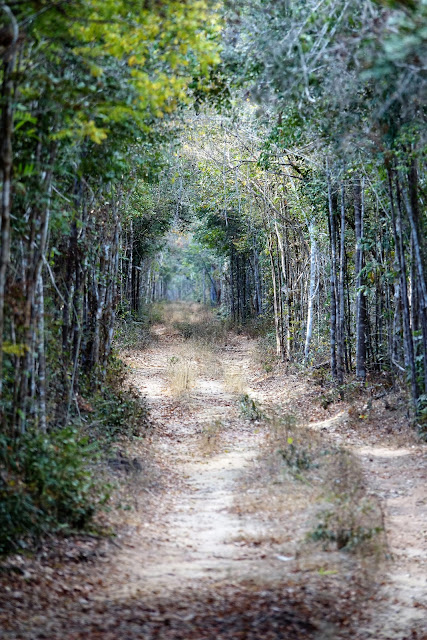On our last morning in Namibia in a small town called Tsumkwe we packed up our truck and headed out to the Living Museum of the Ju/ ‘Hoansi run by the local San people. A living museum is like a regular museum except it is outdoors and instead of reading about stuff, we listened to a San erson who told us and showed us how the San used to live. The San people who work there dress traditionally. The men have animal hide tied around a string in the lower front and a small flap that doesn’t do much to cover their bums. The ladies wear NOTHING up top but they wear a skirt made from hide down below. It was hard to get used to!
 |
| how the men dress |
 |
| how the women dress |
During the day they live in a traditional village set
up for tourists, and use traditional tools and plants to survive, but at night
they change back into their western clothes and sleep in their regular village.
 |
| the traditional village |
We got there and had a choice of 4 different programs.
Unfortunately, we only had enough time to do 1. We decided on the ‘Bush Walk’.
Two men and two women, plus our guide and a baby on one of the women's backs
(the baby was strapped on to her back by a hide of an animal that they had
killed!) came with us. We walked along a "trail" that we couldn't
really make out. The San people had no problem finding their way through the
wild though. They showed us wild berries that they eat as a snack called
Sand Paper raisins (they tasted like fruit leather with a sand paper texture),
and they showed us different plants for healing and sicknesses.
 |
| picking the sandpaper raisins |
 |
| this is what the sandpaper raisins look like |
The women were usually wandering off the
"trail" in search of the bush potato. After about an hour of
searching, they found one. The bush potato grows in the ground just like our
potatoes, but in the wilderness and the above ground part looks just like any
other weed. After about five minutes of struggle to dig it up, we got to taste
it. I didn't like it very much because it was bitter, but everyone else in my
family did.
 |
| digging for the bush potatoe |
 |
| what the potatoe looks like |
As we walked I noticed that some of the San didn't
have any shoes on! There were all sorts of sharp bushes and rocks everywhere I
didn't know how their feet weren't bleeding! When we were done the bush walk we
went back to the village. In the village the men and women sit separately and
do their jobs separately. The women make meals, watch the kids, and make
jewelry. The men's jobs are to make sharp weapons and put poison on them.
The men also hunted and made small sandals out of the hide of animals that they
have killed! We watched the men (and Lucas after a little bit) make a fire from
2 sticks, grass, and a knife! Using a knife, they would make a small indent in
the edge of one stick, just big enough to place the end of the other stick
into. Then being somewhat steady over top of a ball of dry grass, they twirled
one stick back and forth between their palms moving their hands down the stick
and when one man's hands were almost at the bottom another pair of hands would
start at the top keeping the stick twirling at all times! They would all shout
with encouragement towards the sticks very loud! After about 10 minutes of that
there would be smoke made from the friction being made between the sticks! They
would lift the sticks up and sparks would fall down onto the ball of grass,
then they would blow into it and voila there is fire!
 |
| making the fire |
 |
| blowing on the ball of grass and sparks |
 |
| yay - we did it!! |
After we got group photos they walked us to their
little gift shop where the women sold the jewelry that they make and men sell
weapons. I ended up trading my runners, which would be too small soon anyway,
for a handmade knife because they cost a lot and we wanted to help them out!
 |
| trading my shoes for a knife |
 |
| group shot |
I thought it was a really neat experience and even
though we had a long way to go that day and we arrived in the dark and had to
sleep in a hotel parking lot I'm glad we did it! I never realized that people
actually lived like that. My parents said that in other parts of the world
people still do live like that!















Comments
Post a Comment